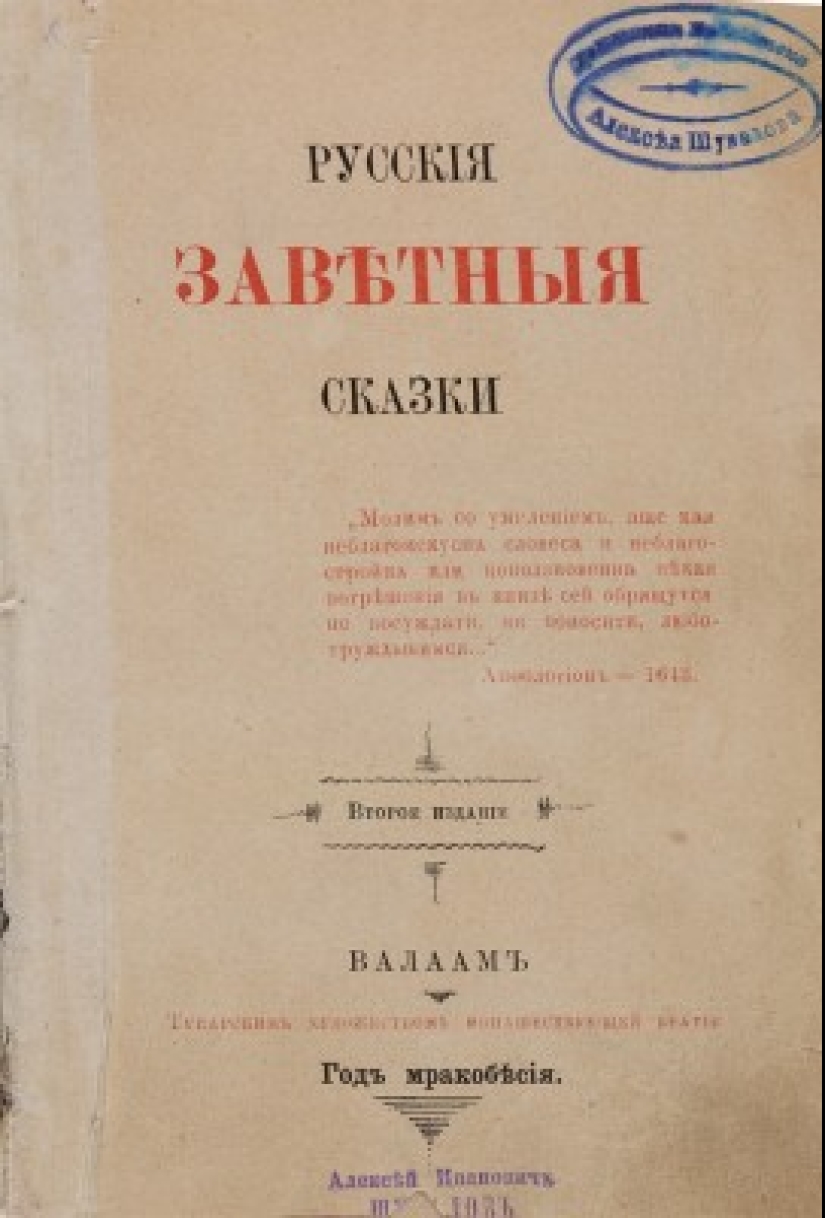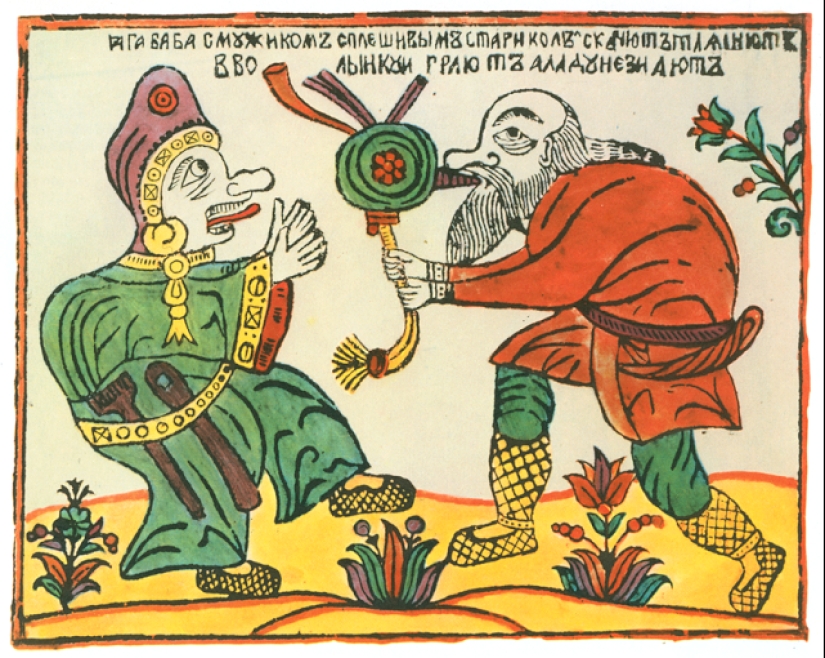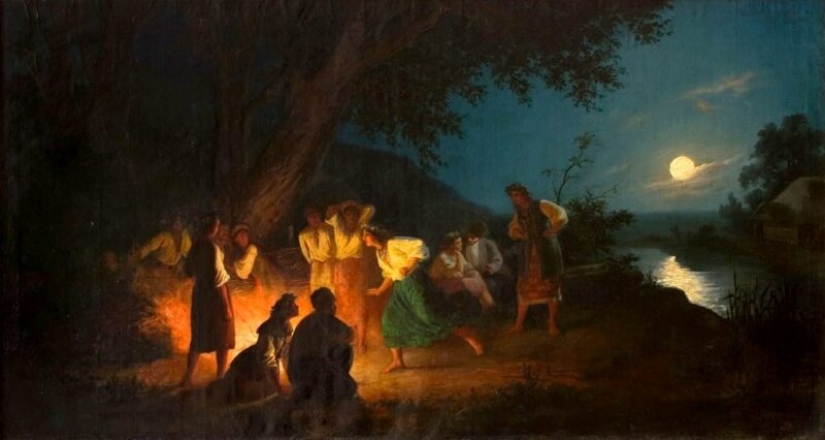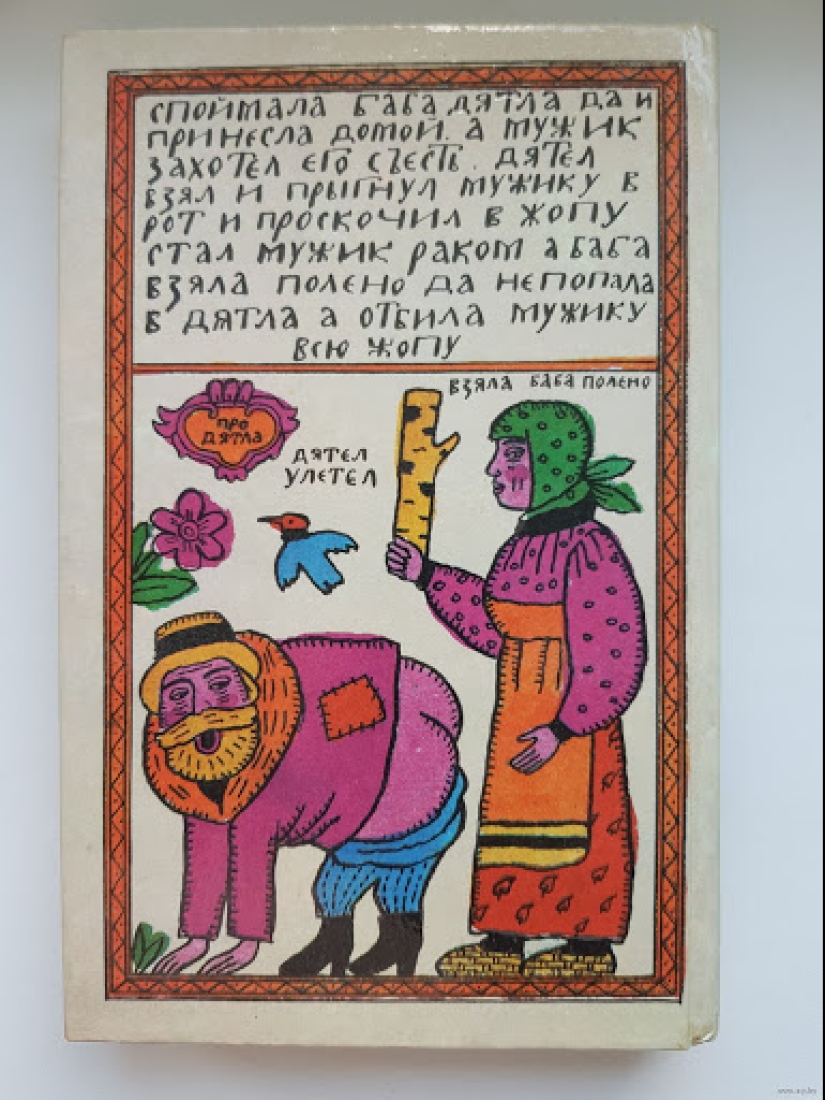What is "sacred tales" and why Russia laughed at confidential
Obscene anecdotes, stories and jokes used in Russia popularity always. Even in an era when almost all aspects of life were ruled by the Church, people told each other bawdy stories involving confidentially and sang ditties, driving the ladies in the paint. Let's see, how did we fashion for "adult content" in folklore.

The first drew attention to the layer of folk art marked "18+" well-known Russian scientist-folklorist Alexander Nikolayevich Afanasyev (1826-1871). An exceptional scholar of folklore and a passionate collector of folk tales began to publish their collections in 1855 and they regularly went the whole 8 years.
A. N. Afanasiev
In books Afanasyev was part of quite a decent children's stories that we all remember from childhood. Their heroes taught us kindness, courage, honesty, care about family and sacrifice. But not everyone knows that traveling to the most remote provinces of the Russian Empire, Alexander collected and tales of a different kind, intended for an adult audience, or as they say today "18+".
In the mid-19th century, the collecting of folklore was such a thankless task. Afanasyev was well aware that publishers do not want to release such a book, and if it comes out, it will cause a huge scandal. In fairy tales that are popularly called "cherished", dominated by erotic stories.
Their heroes were like the characters we know from the usual fairy tales and very real characters. Getting these stories Horny priests, unfaithful wives, gossip and reprobates of both sexes. The material was selected and gathered a lot, so the EPA could not share it with the world.

The name of the originator on the collection of "adult" fairy tales were not. At will Alexander's on the cover of "Russian treasured fairy tales", it was stated — "Balaam. Timeskim art monasticism monks. Year of obscurantism". Already by the late scientist was able potrollit of the clergy, giving the history, characters who were often dishonest and hypocritical priests, the monks, the writings of the monks themselves, and of the most revered in Russia, the monastery of Valamo monastery.
In the Preface to the second edition of his book the author, as if to justify not quite respectable contents of the book, wrote the following words:
In the "Explanatory dictionary of the living great Russian language" Vladimir Dahl says that the Russian word for "Covenant" is interpreted as "in the will; is transferred or stored according to the Covenant, protected, Zarechny [i.e., secret], vows; intimate, secret; hold sacred". Himself a Russian philologist called obscene ditties, sayings or stories "cherished", implying secrecy, accessibility for small companies.

Professor of Philology Boris A. Uspensky, the researcher of creativity of A. N. Afanasyeva, wrote a scientific paper ""sacred tales" by A. N. Afanasyev," which was released in 1994. The assumption speaks openly about the fact that a large part of the collections of folklorist tales are frankly obscene sexual content. The author writes about the formation of folk art as
But not all the stories from the book Afanas'eva on the intimate life. They were a lot of other taboo subjects, for example, concerning dishonesty, greed and cruelty of the clergy and the nobility. In General, topics that have come up in folk tales for adults concerned are simple and clear all things: lies and greed, procreation, loss of virginity, sexual passion, adultery and fertility.
A. N. Afanasiev and many of his followers sought to protect the common people from the hypocritical accusations of vulgarity and cynicism that came from the Church and close to authorities critics. Allegations of sexual laxity of the common people folklorists parried these attacks by the fact that the one who sees in the works of vulgarity, he does not have high morality.

Philologists and folklorists believe that the origins of the "cherished fairy tales" are the echoes of paganism and they represent not that other, as "symbolic fornication." Therefore, to take these stories literally, as erotic or even pornographic stories are not worth it.
Christmas, Shrovetide and Midsummer celebrations in pre-Christian Russia, and even later was always filled with rituals and games with sexual overtones, which were associated with the cult of prosperity and fertility. Masquerade immoral behavior, believed to provide good luck and prosperity for the whole year.

Had "treasured tales" and educational value. In pagan festivals, at night, around the campfire, adult men could tell these foul stories young men to dispel their confusion and deprive harmful complexes. So the young people could get some idea not only about the "technical part" to sexual contact, but also about the intricacies of family relations, such concepts as fidelity and betrayal, lust, and obscenity.
Told stories and the girls, of course, designed especially for them. Often, in order not to embarrass chaste maidens, storytellers used unusual metaphors. The phrase "eat peas" in the vernacular, it could have double sense and mean not only food, but also pregnancy. The word "sieve" in this context meant "to scrape, to deprive of innocence," and "give" to engage in sexual contact with a man.

It is known that the Italian author of the early Renaissance, Giovanni Boccaccio also drew inspiration from folk art. Against the background of some of the works of German or Italian folk art, the most daring Russian "sacred tales" seem completely innocent.
Keywords: Obscenity | Sexual intercourse | Russia | Fairy tales | Folklore | Paganism
Post News ArticleRecent articles

It's high time to admit that this whole hipster idea has gone too far. The concept has become so popular that even restaurants have ...

There is a perception that people only use 10% of their brain potential. But the heroes of our review, apparently, found a way to ...
Related articles

Sex — is not only enjoyable, but also a very useful exercise. Orgasm improves the General condition of the organs and ...

In Imperial times women had no power over him. The sphere of influence of the peasant and the boyar wives was limited to raising ...

The period of the Civil war will forever remain in history as a time of anarchy, violence and destruction. This era has produced ...

New Year's is a time to surprise and delight loved ones not only with gifts but also with a unique presentation of the holiday ...